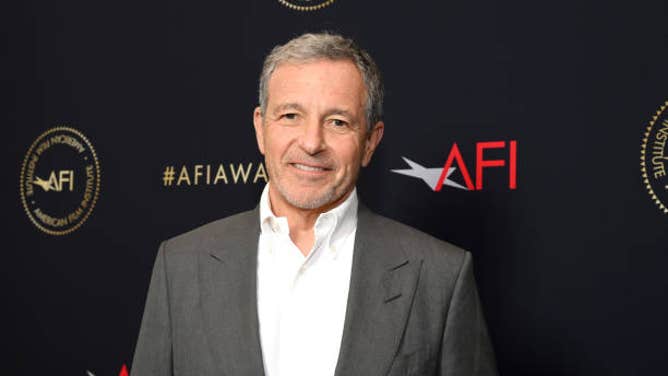The State Of The Mouse House: CHAOS
This should have been a wonderful week in the world of Disney.
The Mouse House announced sequels to three of its most popular modern properties – ‘Toy Story,” “Frozen” and “Zootopia.” It’s the kind of news that guarantees millions in sales from movie tickets, product tie-ins and theme park rides.
Plus, fan favorite Tim Allen, who voiced Buzz Lightyear for four “Toy Story” romps but got bumped for the "Lightyear" spinoff, will be back “to infinity … and beyond!”
Instead, those headlines were swamped by other, more chilling reports.
Mouse House Stock Is A Mess
The mega company will be shedding 7,000 jobs in a cost-cutting measure that speaks to Disney’s current status. The company, seemingly bulletproof not so long ago, has suffered serious stock shrinkage in recent months.
Last year saw the company’s stock prices plummet 44 percent.
You can partially blame 2022 duds like “Lightyear” and “Strange World,” animated misfires that pushed progressive agendas over tried-and-true storytelling.
The company spent last year battling Florida Gov. Ron DeSantis, a public kerfuffle over legislation falsely dubbed “Don’t Say Gay” by biased media outlets. The law protected young children from being indoctrinated by LGBTQ+ content, a measure popular with a slim majority of Americans.
The Republican star seems to have won, hands down. DeSantis won re-election in November by nearly 20 points, and Disney’s special tax status in the Sunshine State is no more.
The Return Of Bob Iger
Bob Chapek is no more, either. The Disney CEO got canned last year following wave after wave of tough news for the company. Bob Iger resumed his place as Head Mouse, and he’s got his work cut out for him.

Bob Iger has returned to the mouse house to try and right the ship at a struggling Disney. (Photo by Michael Kovac/Getty Images for AFI)
Iger announced $5.5 billion in cost cutting measures this week to right the colossal ship, staving off pressure from investor Nelson Peltz who sought a seat on the Disney board along with more fiscal sanity from Mickey Mouse and friends.
Disney was able to avoid adding an unwanted activist to its board. Mr. Peltz was able to say he succeeded in pushing Disney to cut costs, revamp its streaming business, refocus on profit growth and reinstate its dividend, which it suspended in the early days of the coronavirus pandemic.
Those efforts are necessary, in part, because Disney’s new streaming empire is already showing some cracks. Disney+ roared out of the gate in 2019, installing itself as a threat to Netflix, Amazon Prime and Hulu.
Yet Disney just announced the service shed 2.4 million subscribers over the last three months of 2022.
Woke Programming Themes Spell Disaster
What changed? How did Disney’s status as America’s premiere entertainment company take such a hit? It didn’t happen overnight.
The industry titan allowed its most valuable film franchise, the Marvel Cinematic Universe, to go woke. Gender-swapped heroes, extreme diversity measures and other nods to the far Left marked the saga’s Phase IV films and TV product.
Woke also infected the “Star Wars” saga, sending a billion-dollar film franchise into dry dock for repairs. Only Disney+'s "The Mandalorian" has effectively built upon the "Star Wars" legacy.
On the small screen, Disney+ slapped warning labels on classic fare like “Peter Pan” and “Dumbo” while injecting extreme racial politics into new programming – “The Proud Family: Louder and Prouder.”
Disney’s family-friendly brand, one embraced by both sides of the ideological aisle, took a seismic hit over the last year.
The Mouse House clearly hadn’t heard, or listened to, a newer piece of advice in modern Hollywood.
Get woke, go broke. Disney is learning that the hard way.